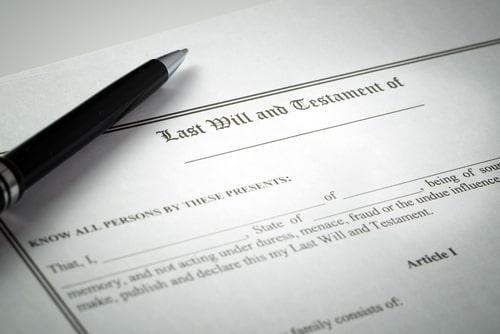What is Required of an Estate Executor in DuPage County?
 Many family members are burdened with the task of organizing and managing the estates of deceased loved ones. Creating a will ahead of time and communicating with those who will be administering the estate helps to prepare loved ones for their responsibilities. An important role of fulfilling an estate is the role of executor. Appointed executors should have a thorough understanding of what is expected of them and what challenges they may face.
Many family members are burdened with the task of organizing and managing the estates of deceased loved ones. Creating a will ahead of time and communicating with those who will be administering the estate helps to prepare loved ones for their responsibilities. An important role of fulfilling an estate is the role of executor. Appointed executors should have a thorough understanding of what is expected of them and what challenges they may face.
Appointing an Executor to an Estate
When a person dies, an executor is appointed to administer and direct the deceased’s last will and testament. Primarily, the executor is responsible for fulfilling the wishes of the deceased and managing necessary affairs. The will’s creator or the court will appoint an executor.
In Illinois, a court-supervised procedure, referred to as probate, may be required in the event of a death and typically is initiated by the executor. Through probate, numerous decisions are made on the behalf of the deceased, including decisions about inheritances and taxes.
It may be the responsibility of the probate court to appoint an executive in instances where the will does not name one, a will does not exist, or the will is invalid. Courts frequently appoint family members to this position, however, anyone who is over the age of 18 and has no prior felony convictions may be an executor.
If an appointed executor wishes to deny the duties of executor, someone else may be appointed. Individuals may wish to pass on these duties due to numerous reasons such as poor health, living far away from the deceased, or insufficient time to fulfill the executor duties.
What is Expected of an Executor?
If an individual has been proactively named as the executor of an estate, there are many steps they can take to prepare for their duties once the estate owner, or testator, has passed. The testator may be encouraged to maintain a list of debts and assets, such as bank and investment accounts. The executor should learn if the testator has any preferred or named accountants or attorneys. Additionally, it may be wise for the executor to discuss other concerns, including funeral and beneficiary preferences.
Executors must ensure all assets included in the will, such as stocks, real estate, or bonds, are accounted for and transferred to the appropriate parties. The approximate value of each asset must be determined as well. Along with assets, the executor must also determine the debts of the deceased, including taxes.
An executor must prioritize the best interests of an estate. Without court approval, an executor is not allowed to override or invalidate a will. The executor is not allowed to neglect inheritances to beneficiaries or payments to creditors. Before certain steps have been carried out, an executor cannot distribute their own inheritance or pay themselves in any way.
Contact Our Wheaton, IL Estate Planning Attorneys
Being an executor can be a daunting responsibility, and those appointed may feel a great weight on their shoulders. Because of this, most executors work with attorneys to assist them in carrying out their mandated responsibilities. A DuPage County estate attorney can provide the necessary insight and resources to guide an executor through the probate process and successfully fulfill their loved one’s wishes. If you need assistance in any stage of estate planning, contact Stock, Carlson & Asso. LLC by calling 630-665-2500 to learn how our team can help.
Sources:
https://www.investopedia.com/terms/e/executor.asp

 630-665-2500
630-665-2500







